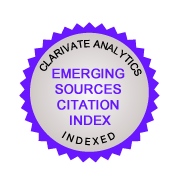A Comparative Review of Caring Thinking and Its Implications on Teaching and Learning
DOI:
https://doi.org/10.32890/mjli2018.15.1.4Keywords:
Caring thinking, Islamic cognitive process, human cognitionAbstract
Purpose – This paper undertakes a comparative review of the concept of ‘Caring Thinking’ from the perspectives of specific scholars (with different cultural voices) in the field of Educational Psychology. Specifically, it focuses on the area of Thinking and Cognition.
Methodology – The review scrutinised the concept of caring thinking in Matthew Lipman’s (2003) Thinking Model as well as Mohd Daud Hamzah and Abdul Kadir Arifin’s (2001) Islamic Cognitive Processes Model (ICPM). Employing a cross-cultural comparative review, the analysis concentrated on the commonalities shared and the differences between the two schools of thought. The aspects of comparison included cognition principles, caring thinking inventory, thinking direction, human characterisation and role of beings. Findings – This review suggests that the scholars propagate and share comparable nuances on the underlying characteristics of human cognition in order to facilitate the formation of the caring thinking concept. However, the interplay of human inner drive which incorporates values is deliberated in different cultural voices. While Lipman (2003) vastly discusses the caring thinking model based on the western context, Mohd Daud Hamzah and Abdul Kadir Arifin’s (2001) cognition model attempts to highlight human cognitive process from an Islamic perspective.Significance – These findings suggest the need to understand the derivation of human cognition processes, that further explains the ability to sense bad and good values in moral virtue development. Fundamentally, this discussion considers the perspectives of both models regarding the formation of an individuals’ thoughts and behaviours, which reflect the attributes of ‘caring thinking’. It implies that greater effort should be undertaken to explore how caring thinking can be made useful to the field of education.
Metrics
Metrics Loading ...
Additional Files
Published
28-06-2018
How to Cite
Hamzah, A., & Shaari, A. (2018). A Comparative Review of Caring Thinking and Its Implications on Teaching and Learning. Malaysian Journal of Learning and Instruction, 15(1), 83–104. https://doi.org/10.32890/mjli2018.15.1.4
Issue
Section
Articles




























